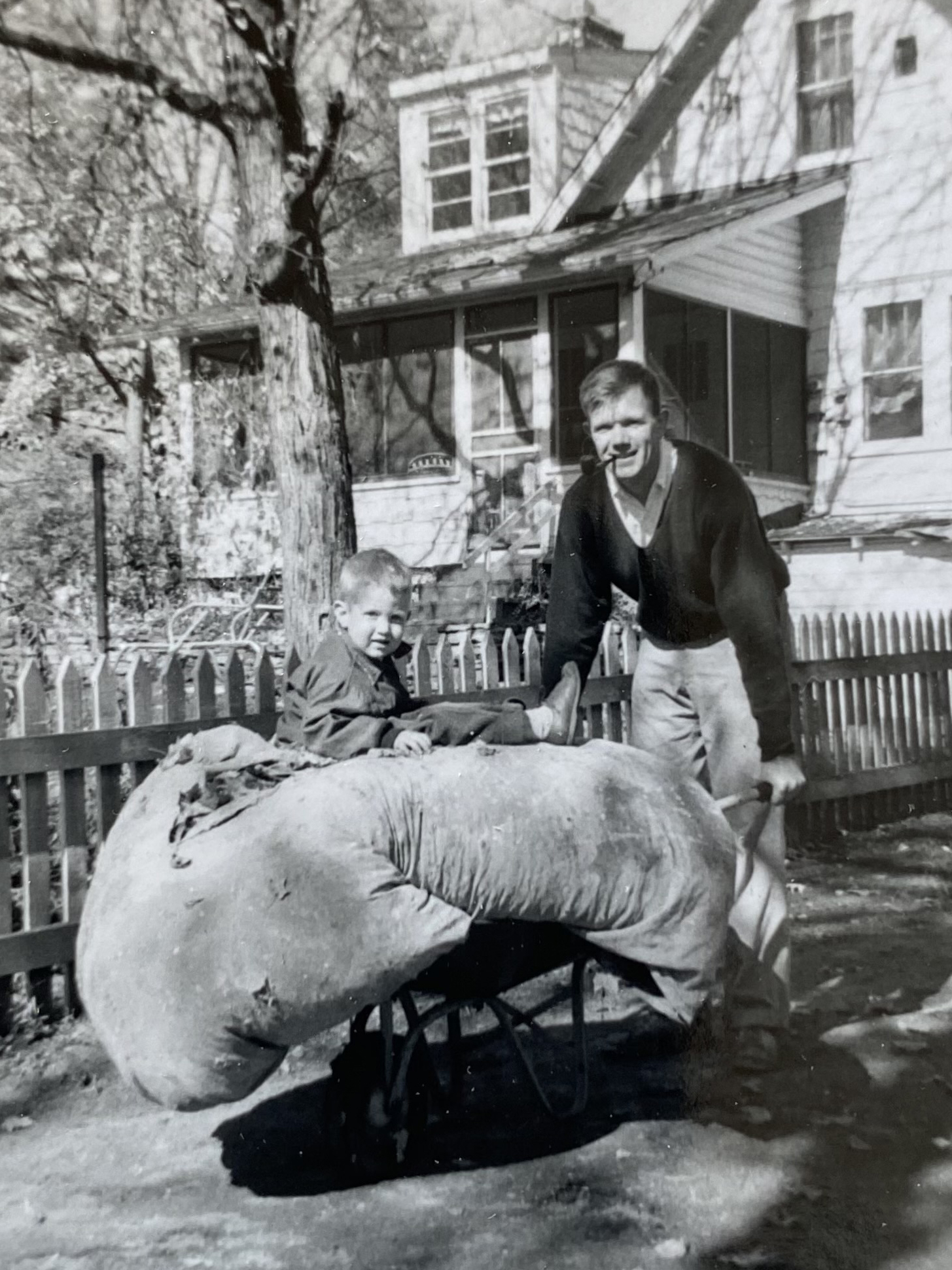One summer morning, while my girlfriend, Maria, was showering, I decided to make her a pot of tea.
Tea was something special to Maria. She had an entire shelf in one of her kitchen cabinets full of mason jars and tin cans of different kinds of teas she bought in bulk.
Maria had specific demands for tea. She liked black tea with bergamot in the morning. The tea had to be a specific amount, the water had to be boiling, and the steeping time exactly three minutes. So, on this particular morning, while she was showering, I thought I’d be nice and make the tea. But I forgot to set the timer and got busy doing something else.
Showered and dressed, Maria appeared in the kitchen. “How long has this been steeping?” she asked, hovering over the teapot.
“I dunno. I forgot to time it,” I replied.
Without a moment of hesitation, she removed the tea strainer, dumped the whole pot, and proceeded to brew a new one. I felt insulted. And my mood changed. I got kinda angry.
“Just because I forgot to set the timer, doesn’t mean you have to throw away the tea I made you,” I said in an effort to defend myself. My effort wasn’t good enough.
Maria noticed my mood change. With properly steeped cups of tea in hand, she suggested we lay down on her bed for a moment. She asked about my mood. I told Maria that I was actually feeling a little sad. And I didn’t know why.
“Where in your body do you feel that feeling?” Maria asked me.
I paused. “I don’t know,” I mumbled, sorry that I’d brought up such a vague sensation.
“Yes you do,” Maria countered. “It’s probably somewhere in your torso.”
Maria had asked me to perform this kind of body scan before. She had insisted—since the beginning of our relationship—that everyone suffered from unresolved emotional traumas which she called “samskaras.”
She said samskaras were energy blocks caused by experiences we didn’t have the maturity to deal with constructively at the earlier point in our lives at which they had occurred or even in past lives. She explained that those unresolved traumas festered inside us and created “trigger points” that became more and more pronounced as we got older.
I told Maria that, at least in my case, she was wrong. I had had such an unusually idyllic childhood that I hadn’t suffered any traumas.
“The only injuries I suffered were either justified or caused by my own carelessness,” I exclaimed in a louder voice in an effort to emphasize how certain I was.
“No,” she insisted. “They are not necessarily bodily injuries. They can be more subtle than that. Just lie there, breathe, and feel your body. Where do you feel your sadness? Show me with your hand.”
I put my hand over a spot between my solar plexus and my belly button. “Here, I suppose,” I said resentfully, already despising the exercise.
“Okay, good. Then think back and tell me when did you first feel this feeling in that spot?”
At first, I couldn’t think of anything, And I told Maria so. She encouraged me to be patient and to calmly wait for something to come to me. Then I had an odd recollection. I was standing on the back steps of our house on Easton Road where I grew up in Deephaven. I was looking out over the backyard, specifically at the lawn, which I had just mowed.
The grass had been long, and I had wanted to cut it for my dad. We had a reel-type push lawn mower. I was probably only about five years old and could just barely reach the wooden handles. I clearly remembered seeing jagged strips of unmowed grass between the swerving swaths of cut grass I had managed to mow. But I was proud that I’d helped my dad. And I think I was standing there because I could hardly wait for him to get home so he would see what I had done for him and praise me.
It seemed it was exactly at that moment that Dad returned. In my memory, he went straight for the mower and recut the entire lawn.
To my astonishment, upon telling this silly little story, my chin began to quiver and a deep, gut-level sadness surged up inside me. My nose stung and my eyes watered.
Maria noticed all these expressions and tenderly encouraged me to fully feel what I was feeling. To my complete amazement, I began crying, bawling, would be more accurate. I remembered that my pride had been injured. I’d wanted to help Dad, but he gave no affirmative acknowledgment to my effort whatsoever. I felt crushed. I knew my effort wasn’t good enough.
I wasn’t good enough.
“Good,” Maria cooed as though I’d just accomplished a tough feat. “That’s a samskara. You found one. You have others.”
“No, I don’t think so,” I said between sniffles. “I don’t even know why I’m crying. That’s ridiculous to think that not mowing the lawn well enough to satisfy my dad—when he was a perfectionist, and I was a child not tall enough nor strong enough to push the mower—could have any impact on me. That can’t be a samskara. Anyway, even if it is, there’s no way there are others!”
“I assure you, there are more,” Maria insisted gently.
Not long after this samskara discovery, I took dinner to my dad, as I had been doing at least a couple of times a week for a year or two. Dad, now 93, is getting increasingly deaf, so conversation is challenging. In fact, when Dad and I spent time together, throughout most of our lives, it was to engage in a task, to build a footbridge over the creek at our cabin, to hunt ducks in the fall, to walk silently in the woods. Words were not a big part of our shared experience. But on this occasion I’m recalling after I put the dinner I’d brought over on the stove and took my usual place beside him in the sitting room that opened into the kitchen, he said something that shocked me.
“BK,” he said (he’s always called me “BK”). “I’ve been thinking about something that happened long ago, that I wish I had handled differently. There’s no way you could even remember this, but for some reason, it came up to me recently and I wanted to apologize for it.”
This was unusual territory for Dad. He never opened up a conversation with a discussion of feelings.
He continued, “You can’t possibly recall this, but when you were a very young boy, you once mowed the lawn for me…” I couldn’t believe what I was hearing. In the more than 60 years that had transpired since I’d tried to cut the lawn, I had never spoken of that experience to anyone other than Maria, and that was only about a week prior to this. My eyes immediately began to flood with tears. “Instead of thanking you, I immediately mowed the lawn again. I wish I hadn’t done that.”
I stared at Dad through bleary eyes, dumbfounded. Had I ever told him that story? I was sure I hadn’t. In fact, I was sure I had never told anyone. Why would I? It was just a stupid little story. But it was odd how clearly I remembered it. Every detail remained sharp through six decades of additional experience. Each moment in that time span cried for placement in the great hall of memories. The unlikely survival of that moment was like spending a week in the Louvre and coming away most impressed by one tiny preliminary sketch barely noted in the museum’s archives. I thanked Dad for his apology and told him about the strange coincidence of my conversation with Maria.
This experience has made it evident to me how not only interconnected we are but also how my past wounds hide within, just waiting for something, or more likely someone current to retrigger that old feeling that I hadn’t processed for whatever reason at the time of injury.
I have begun to notice how often my reaction to another person—more often than not, Maria—really has to do with something old being retriggered within me. I also recognize that I “do” the same to her: I retrigger old, compounded feelings of not being loved.
I realize how often I have chosen to run away from or numb out unpleasant, and deeply unmanly feelings of vulnerability. Had it not been for Maria’s encouragement to be still and feel into my body, I would have never accessed that old sadness, and she, in turn, would have never known that something as simple as pouring out my freshly made tea felt like her telling me straight to my face: you are not good enough!
Since then, we have hit each other’s samskaras again and again. Sometimes we are able to take a pause and help each other feel into what is really going on. Other times we deem the other person a callous jerk and either fight from that place or distance from each other. But more and more, we have gotten better at recognizing when we are triggered. This awareness gives us an opportunity to understand how these old experiences maintain a stranglehold on our present-day identity.
The awareness gives us time so that we don’t always need to be reactive or at least understand that when we are, it is really a cry for love and acceptance. It’s not easy—we slip and fall often, but we are less unconscious about where it’s all really coming from.
Little by little, we grow in our love for each other and our gradual mastery of our triggers.
~


 Share on bsky
Share on bsky





Read 19 comments and reply